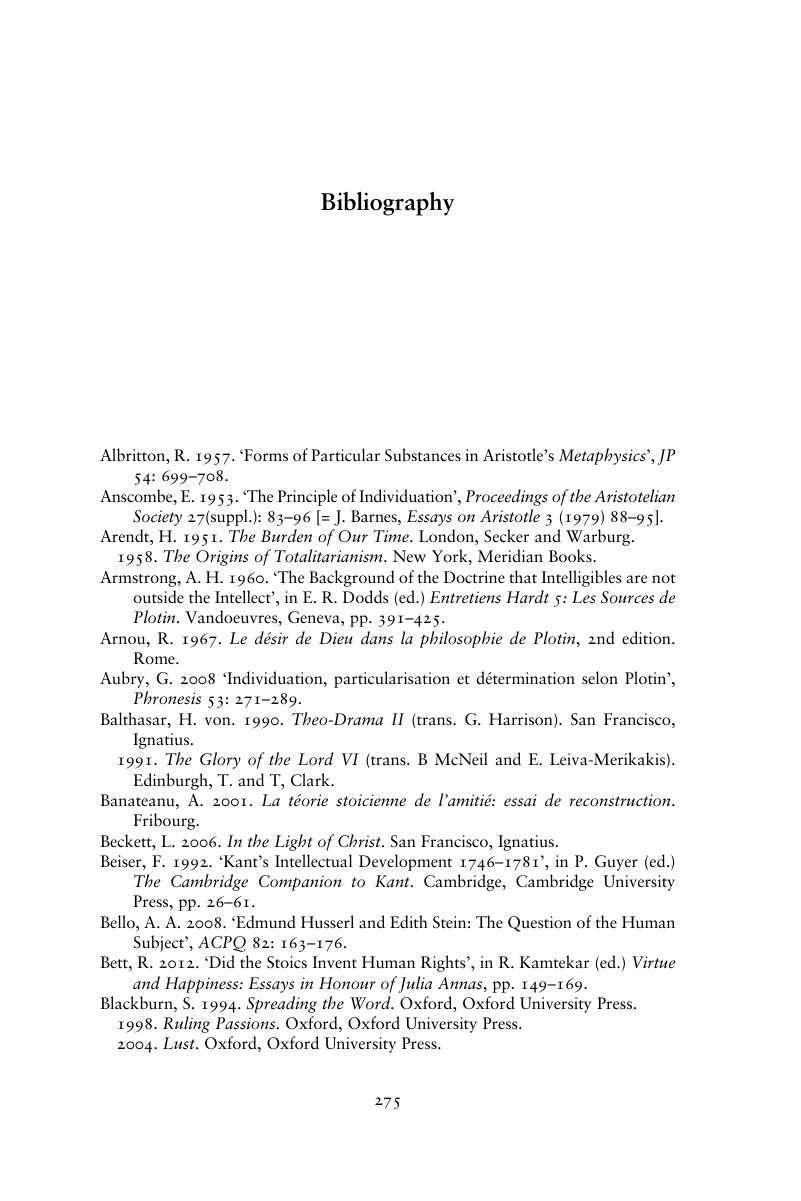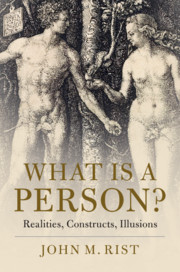Book contents
- What is a Person?
- What is a Person?
- Copyright page
- Contents
- Acknowledgments
- Introduction
- Part I Constructing the ‘Mainline Tradition’
- Part II No God, no Soul: What Person?
- Part III Toward Disabling the Person
- Part IV Persons Restored or Final Solution?
- Epilogue or Epitaph?
- Appendix The World of Rights Transformed Again
- Bibliography
- Index
- References
Bibliography
Published online by Cambridge University Press: 05 December 2019
- What is a Person?
- What is a Person?
- Copyright page
- Contents
- Acknowledgments
- Introduction
- Part I Constructing the ‘Mainline Tradition’
- Part II No God, no Soul: What Person?
- Part III Toward Disabling the Person
- Part IV Persons Restored or Final Solution?
- Epilogue or Epitaph?
- Appendix The World of Rights Transformed Again
- Bibliography
- Index
- References
Summary

- Type
- Chapter
- Information
- What is a Person?Realities, Constructs, Illusions, pp. 275 - 284Publisher: Cambridge University PressPrint publication year: 2019



